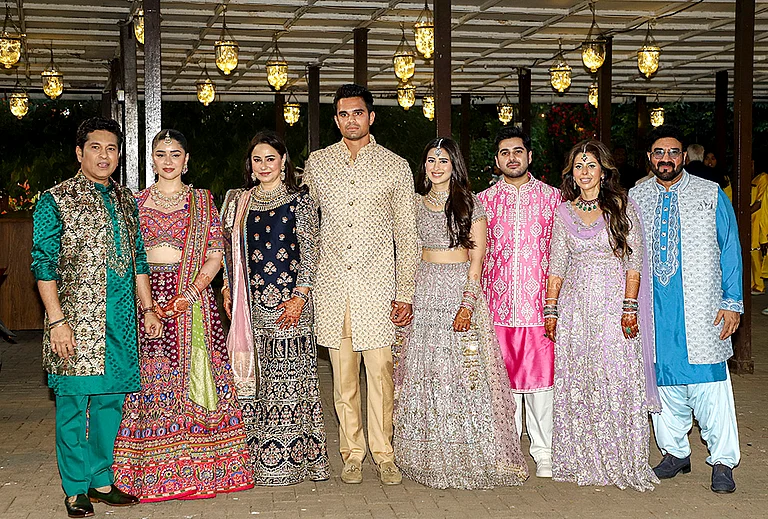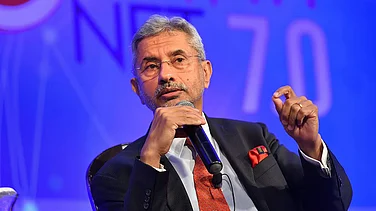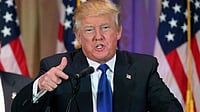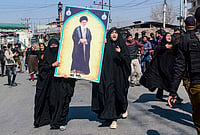THE legal battlelines drawn up against P.V. Narasimha Rao were getting blurred by the end of last week. On August 2, the Central Bureau of Investigation (CBI) requested the Delhi High Court for another week to show some 'tangible' results in the Jharkhand MPs bribery case, while in another court on the same day, Rao's lawyers were requesting a deferment of the trial in the Lakhubhai Pathak cheating case until their Special Leave Petition (SLP) against the order of the chief metropolitan magistrate (CMM) was disposed of by the Supreme Court.
Ever since May 24 this year, when the court ordered the CBI to lodge a fresh FIR on the basis of the complaint lodged by petitioner Ravinder Kumar in the JMM case, the main point under debate has been whether the federal agency will in fact produce any tangible results before the court on the designated date of August 9.
Sources close to the investigation say that the complaint filed against Rao by Ravinder Kumar in the JMM case, may make it dif-ficult for them to tie up loose ends. To support their point, they cite specific instances of 'conflicting versions' that witnesses drawn up by Ravinder Kumar have come up with. Bhaskar Rao, a prize witness presented by the petitioners, has changed tack and now wants to become a complainant himself. There are also different versions about the total amount allegedly involved.
According to Bhaskar Rao's version, Rs 2.5 crore was the figure transacted between Rao and the Jharkhand MPs. However, another chapter was added to the ongoing investigations when Harsh Saran Lal, a sacked former employee of ITDC, came up with a new angle. His version: while Narasimha Rao was trying to save his minority government, Lal, who was then a receptionist with the Lodhi Hotel, was looking around for a gas connection from the MPs' quota. He approached JMM MP Shailendra Mahto for the connection, but instead ended up as a middleman trying to save the Rao government.
The ITDC receptionist alleges that a Hyderabad-based industrial consultant, K. Ram Mohan Rao, and one M. Krishna Rao introduced him to Narasimha Rao's brother Manohar Rao and V. Rajeshwar Rao, a close relative of the then prime minister and an MP of the Rajya Sabha from Andhra Pradesh. Lal says he offered to introduce Mahto to Rao or his family members, since he now knew Manohar Rao and Rajeshwar Rao. "I asked Mahto whether he would support (P.V. Narasimha) Rao if I introduced him directly to Rao sahib or his family members without any middleman," Lal claims. To add to the prevailing confusion, Lal said that six rather than four MPs—Shailendra Mahto, Shibu Soren, Suraj Mandal, Simon Marandi, Rajkishore Mahto and Krishna Mardi—were paid Rs 1.9 crore through Rajeshwar Rao.
However, when contacted in Hyderabad by Outlook , Ram Mohan Rao denied having introduced Lal to Manohar or Prabhakar Rao. "Lal knows me because I used to stay in Lodhi hotel. But I never introduced him to anybody. This fellow (Saran Lal) is not worth one rupee...why should someone buy MPs through him. Rajeshwar Rao himself was an MP at that time, he could have directly gone to Mahto, if he so wished," said Ram Mohan.
According to Lal's freewheeling account, he along with his friends Ganga Singh and Vijay Handa met Mahto on July 28 and then the foursome met V. Rajeshwar Rao at Andhra Bhavan. After awhile, Shibu Soren and Suraj Mandal were also called there. The three JMM MPs remained closeted with V. Rajeshwar Rao for some time and when they left, everything had been finalised. The demands, according to Lal: Rs 50 lakh each for six MPs and a separate state of Jharkhand. The same night, he claims, a close confidant of Rajeshwar Rao carried the Rs 50 lakh as token money to Soren's house. After the government had been saved, Lal went to see V. Rajeshwar Rao but was apparently threatened by the MP with dire consequences.
HOWEVER, CBI investigators say there are more bottlenecks ahead. For instance, when they questioned Vijay Handa in Bangalore, he declined having played any such role. "I know Congressmen and meet them casually. But this JMM thing is absolutely incorrect," he told his interrogators. Besides Handa's denial of Lal's version, at least two other witnesses have come up with different theories. So who is speaking the truth?
There also seems to be some confusion about where exactly the money was paid. While Ravinder Kumar has said that the money was paid at a five-star hotel in Delhi, the CBI has been unable to ascertain the facts. According to them, none of the witnesses mentioned in the complaint say they were present at the hotel at the time of the payment.
There is no doubt, however, about the overwhelming circumstantial evidence in the JMM case. It is definite, for instance, that the money had been deposited in the bank accounts around the same time that Narasimha Rao managed to save his government. Critics of the agency say that the CBI has deliberately glossed over the circumstantial evidence. And despite the furore, not a single Jharkhand MP has been questioned so far.
But in the Lakhubhai cheating case, where Narasimha Rao's role is increasingly being put to question, his counsel asked for more time to study "the huge bunch of documents supplied by the CBI", drawing strong criticism from the CMM. Rao's lawyers had about 15 days to study the CBI documents which, interestingly, they have not done. The two main accused in the case, the self-designated godman Chandraswami and Kailash Nath Agrawal, who were paid $100,000 in 1983—reportedly after being assured by Narasimha Rao of the godman's credentials—have been in Tihar jail since May 2.
Meanwhile, the Supreme Court has fixed September 9 as the date for hearing in the St Kitts' case. CBI officials declined to comment on an embarrassing piece of disclosure that came to light. A deputy inspector general of CBI's Special Investigation Team (SIT) R. Srikumar, who was connected with the St Kitts' case, had put down on paper that Narasimha Rao should be booked under Section 120 of the IPC. The official, who has been \subsequently reverted to his home cadre Tamil Nadu, had said that the statements of A.P. Nanday, a former enforcement official, and R.K. Rai, the then consul general in New York and the documents available, made it mandatory for the agency to apply Section 120 and other relevant sections against Rao.
In this melee, Narasimha Rao has so far managed to stay clear of a personal appearance in any of the courts. His political survival will be dependent largely on his ability to beat the legal wiretap in the months to come. Rao has told interviewers that he is innocent. But no more than that. As investigators say, the real action may begin when the former prime minister is finally put to a cross-examination.






















